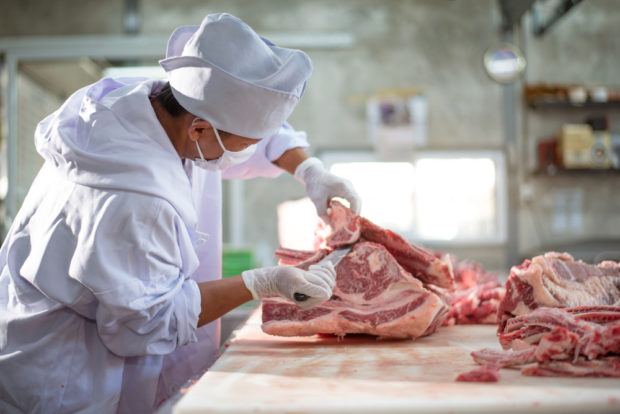Operating a successful food business is not just about creating delicious meals or offering exceptional service. Ensuring food safety compliance is crucial to protect your customers and your business. Understanding and adhering to food safety regulations for restaurants and other food-related enterprises can prevent legal troubles, enhance customer trust, and promote a healthier community.
In this blog, we’ll explore the importance of food safety regulations, discuss key compliance requirements, and provide actionable tips to help your business stay on the right track.
The Importance of Food Safety Regulations
Food safety regulations are designed to protect public health by preventing foodborne illnesses, which can have serious consequences for individuals and businesses. These regulations establish guidelines for handling, preparing, and storing food to minimize risks.
Safeguarding Public Health
Foodborne illnesses affect millions annually and can result in severe health issues or fatalities. Regulations ensure that food businesses follow practices that reduce contamination risks.
Protecting Your Business
Compliance with food safety regulations shields your business from costly fines, lawsuits, and potential shutdowns. Moreover, it helps build a reputation for reliability and care, attracting and retaining customers.
Enhancing Consumer Trust
Modern consumers are increasingly aware of food safety issues. Demonstrating your commitment to food safety compliance fosters trust and loyalty, setting you apart in a competitive market.
Key Food Safety Regulations for Restaurants
Restaurants and other food businesses must follow specific regulations depending on their location. While the exact requirements may vary, the following are commonly enforced:
Proper Food Handling Practices
To prevent contamination, staff must:
- Wash hands thoroughly before handling food.
- Use gloves when necessary.
- Avoid cross-contamination by separating raw and cooked foods.
Temperature Control Standards
Keeping food at safe temperatures is critical. Regulations typically require:
- Refrigerated foods to be stored below 40°F (4°C).
- Hot foods to be maintained above 140°F (60°C).
- Regular monitoring and recording of food temperatures.
Food Storage Guidelines
Improper storage can lead to contamination or spoilage. Restaurants must:
- Store food items in labeled, sealed containers.
- Maintain a clean, organized storage area.
- Regularly inspect for expired or spoiled products.
Cleaning and Sanitization
Cleanliness is non-negotiable in food safety. Regulations mandate:
- Routine cleaning of surfaces, equipment, and utensils.
- The use of approved sanitizers.
- Maintenance of pest-free environments.
Steps to Ensure Food Safety Compliance
Meeting food safety regulations for restaurants requires a proactive and systematic approach. Follow these steps to keep your business compliant and safe:
Step 1: Understand Local Regulations
Every jurisdiction has specific food safety regulations. Contact local health departments or regulatory agencies to obtain the necessary guidelines. Familiarize yourself with federal, state, and local requirements.
Step 2: Train Your Staff
Invest in comprehensive training for your team. Cover topics such as:
- Personal hygiene.
- Safe food handling techniques.
- Cleaning and sanitization protocols.
- Emergency procedures for contamination or outbreaks.
Step 3: Develop a Food Safety Plan
Create a detailed food safety plan tailored to your operations. Include:
- Hazard analysis and critical control points (HACCP).
- Cleaning schedules.
- Emergency response protocols.
Step 4: Regular Audits and Inspections
Conduct routine internal audits to identify potential risks. Schedule periodic professional inspections to ensure adherence to food safety compliance standards.
Common Challenges in Food Safety Compliance
Achieving and maintaining compliance can be challenging, especially for small businesses. Understanding these hurdles can help you address them effectively.
Lack of Awareness
Many business owners are unaware of the full scope of food safety regulations. This can lead to unintentional non-compliance.
Resource Constraints
Small businesses may struggle with limited budgets, making it difficult to invest in training, equipment, or professional audits.
Evolving Regulations
Food safety laws frequently change. Keeping up with updates can be daunting, but it’s essential to stay informed to avoid violations.
Employee Turnover
High staff turnover in the food industry means constantly training new employees, which can strain resources.
Tips for Staying Ahead in Food Safety Compliance
Adopting the right strategies can simplify compliance and improve your business’s food safety practices.
Leverage Technology
Modern tools can streamline compliance efforts. For example:
- Digital thermometers for accurate temperature tracking.
- Software for scheduling cleaning tasks and inspections.
- Online training programs for staff.
Build a Safety-Focused Culture
Promote a culture of safety where employees understand the importance of compliance. Recognize and reward staff who excel in adhering to food safety protocols.
Engage with Regulators
Stay in touch with local health officials to remain informed about updates and changes to food safety regulations. Attend workshops or seminars they offer.
Document Everything
Keep detailed records of your food safety practices, including:
- Training sessions.
- Cleaning schedules.
- Inspection results.
Consequences of Non-Compliance
Failing to comply with food safety regulations for restaurants can have serious repercussions. Understanding these risks underscores the importance of adherence.
Legal Penalties
Non-compliance can result in fines, lawsuits, or even criminal charges in severe cases.
Business Closure
Health authorities may shut down your operations if violations are severe or persistent.
Reputation Damage
News of a foodborne illness outbreak linked to your business can destroy customer trust, leading to revenue loss and potential closure.
Conclusion
Understanding and implementing food safety regulations is a vital aspect of running a successful food business. By prioritizing food safety compliance, you protect your customers, your reputation, and the longevity of your operations.
Stay informed about food safety regulations for restaurants, invest in staff training, and embrace technology to simplify compliance. With a commitment to safety and quality, your business can thrive in a competitive industry while ensuring public health and trust.
Remember, food safety is not just a legal requirement—it’s a responsibility that impacts everyone.
Need Commercial Appliance Repair in Wilmington, DE?
Since 1984, Commercial Equipment Service Inc. has been providing service and sales of commercial/restaurant cooling, refrigeration and heating equipment to Wilmington, Delaware and the surrounding area. We are a locally owned business with over 42 years of experience. Our friendly staff prides itself on our professional attitude and service. Commercial Equipment Service Inc. is a 24/7 on-call service for your appliance needs! We install and repair all refrigeration and cooking equipment, heating and air conditioning, emergency generator sales, kitchen exhaust systems, beverage systems and so much more. Contact us today to learn more about what we can do for you!

